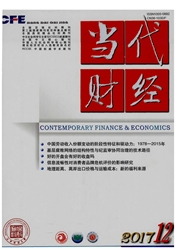

 中文摘要:
中文摘要:
在证监会IPO申请审核标准的约束下,中国存在70%和20%负债制度阚值。以2001—2010年中国A股9860家上市公司为样本,研究发现,当负债小于20%时,长期债务或银行借款对公司增长起限制作用,而且银行借款对公司价值造成负面影响;当负债超过70%时,由于债权人的预算软约束,长期债务不减反增,助长了公司非理性高速增长,以及银行放任公司高风险高增长,造成公司价值毁损;当负债在20%与70%之间时,预算软约束状况得到改善,但负债的正面治理效应仍不显著。
 英文摘要:
英文摘要:
There are two special debt thresholds of 70% and 20% in China under the restrain of the requirements on IPO application by CSRC. Taking 9860 "A" share listed companies from 2001 to 2010 in China as samples for the study, this paper finds out that when the debt ratio is below 20%, long-term debts or bank loans would restrict the growth of the companies, resulting in negative impact on the company value. When it is above 70%, due to the soft budget constraints of the creditors, the long-term debts would increase rather than decrease, pushing the irrational high growth of the companies; and the company value would be damaged if banks conniving their high growth with high risks. When the debt ratios are between 20% and 70%, sott budget constraints would be improved; however, the effects of positive governance on debt are still not significant.
 同期刊论文项目
同期刊论文项目
 同项目期刊论文
同项目期刊论文
 期刊信息
期刊信息
